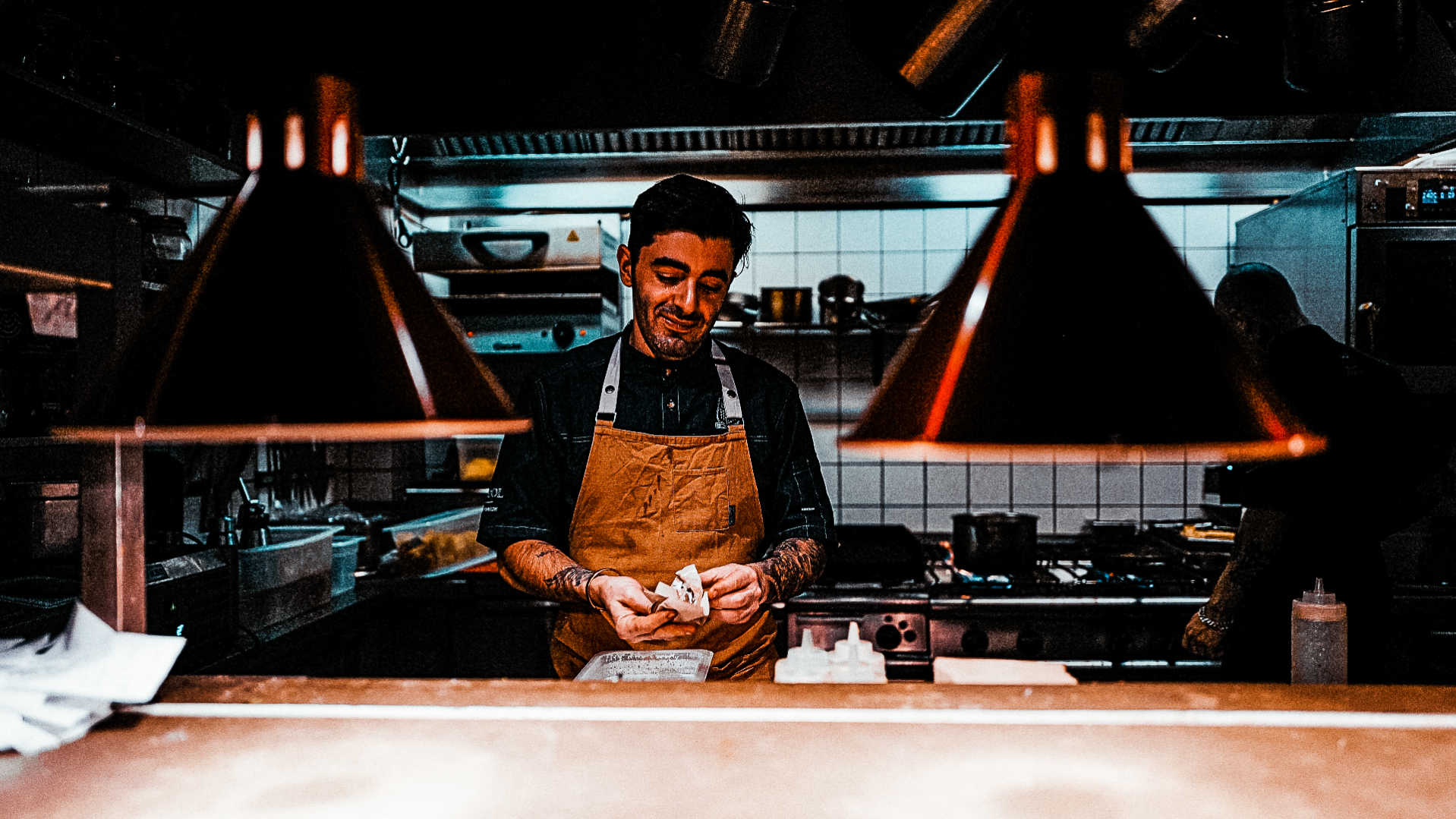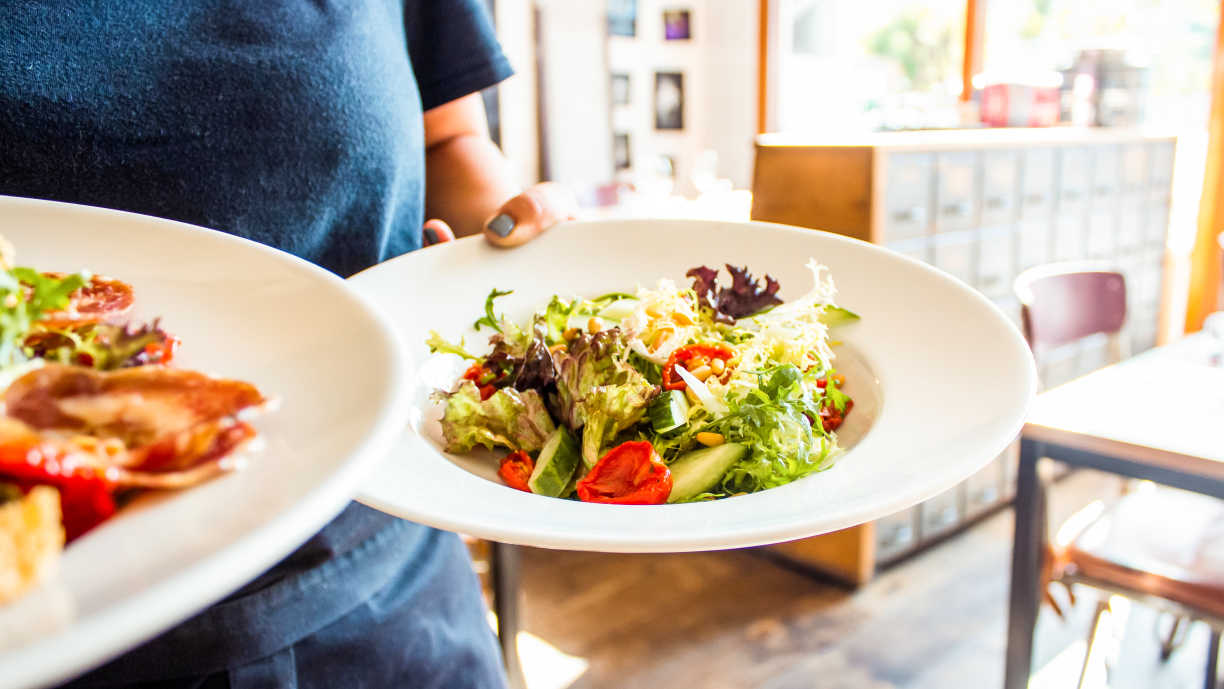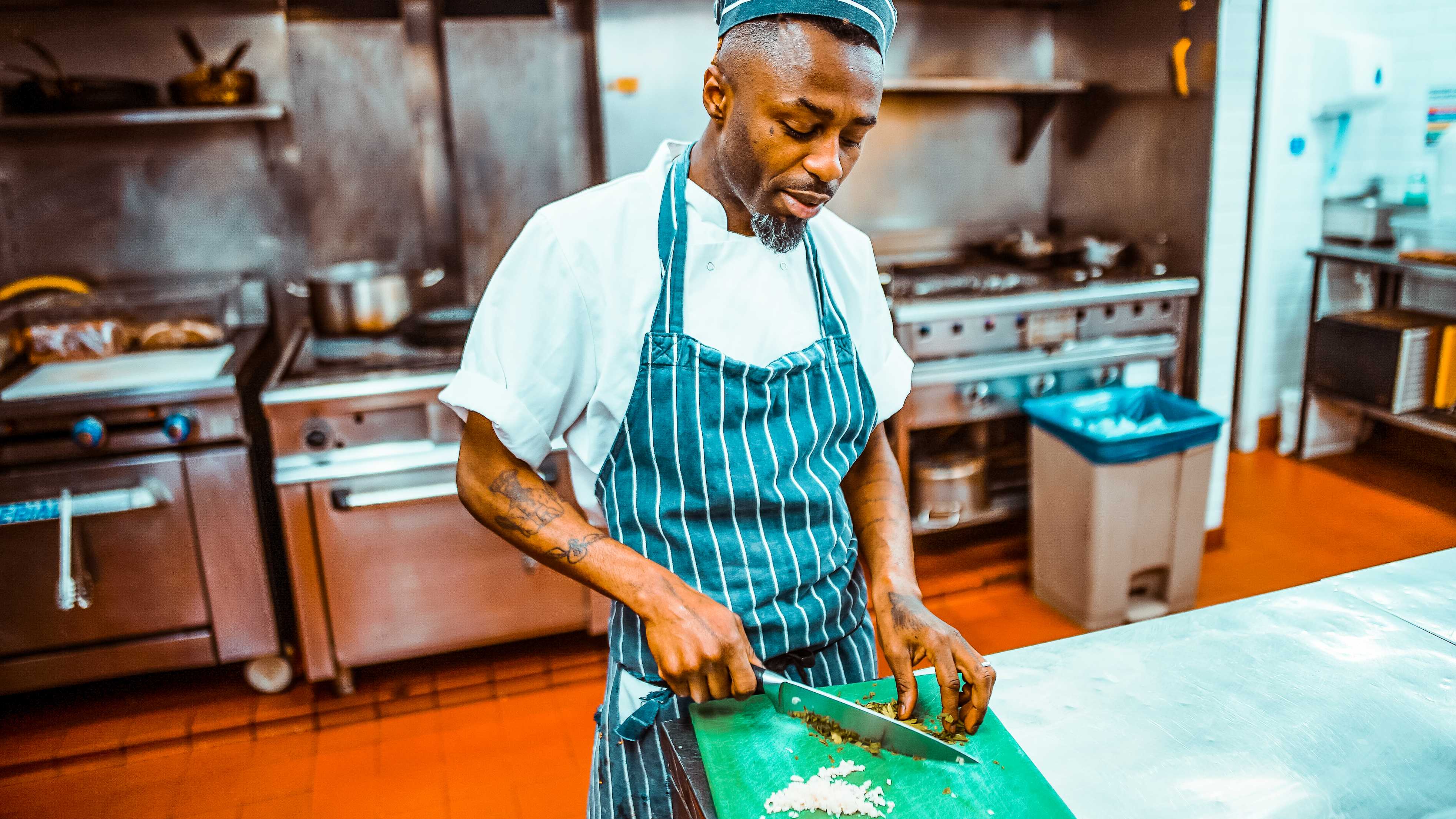How To Talk Like a Kitchen Pro

Whether you’ve worked in the “back of the house” or just finished binging The Bear, you know that kitchen workers have their own language. The most effective way to become fluent in a language is to put yourself in a situation where you have no choice but to speak it. However, if you need a head start, study up with our basic “Kitchen Speak” guide.
All Day
“All day” is used to describe all of the current orders of a type the kitchen is working on. For example, if two mushroom toast orders come in on top of the four the kitchen is already working on, that would be described as “6 mushroom toast all day.”
Behind
When working in a kitchen, it’s vital that everyone is aware of everyone else’s location at all times. Everyone is going to be rushing around to fill orders and accidents can easily happen without proper caution. That’s why kitchen workers will call out “behind” as they pass behind another person. Of course, non-English kitchens have their own words for terms like “behind” like “atras” in Spanish and “ushiro” in Japanese.
Corner
“Corner” is similar to “behind” except it’s said when turning around a corner. It’s important to remember that “corner” and “behind” are about announcing your own movement, not asking others to move. If you hear “behind” it’s a warning NOT to move until the person has finished moving by.
Eighty-Six
“86” is one of the most common pieces of food and beverage industry jargon. It rhymes with “nix” and has the same meaning, which is to throw out or be rid of. If someone says “86” for an ingredient or certain dish it means the kitchen is out of an ingredient or ingredients for a dish.
Fire
To “fire” something is to finish cooking it. “Fire the chicken” means the chicken needs to be going out ASAP.
Kitchen Equipment Slang
There are many more slang terms for kitchen equipment than there is kitchen equipment which means a whole lot of terms. We simply can’t list them all here but a couple of examples include a “low-boy,” which is an under-the-counter fridge, and a “salamander” which is a powerful broiler. You’ll pick up more equipment lingo the more you encounter.
Mise
Short for the French term mise en place, “mise” is all the prepped ingredients a chef will need for the night.
Ordering/Order in
Ordering” or “order in” means to start preparing whatever order is being ordered in. Like “ordering egg tart” or “order in club sandwich.” It means you should expect to be told to “fire” something soon. You may even hear the dreaded “order-fire” which means you’ll have to start and complete an order without warning.
That’s only a start. You’ll learn a lot more kitchen speak through your culinary labor life. It’s also important to remember that every kitchen will have their own unique slang so you should always be open to learning something new.

